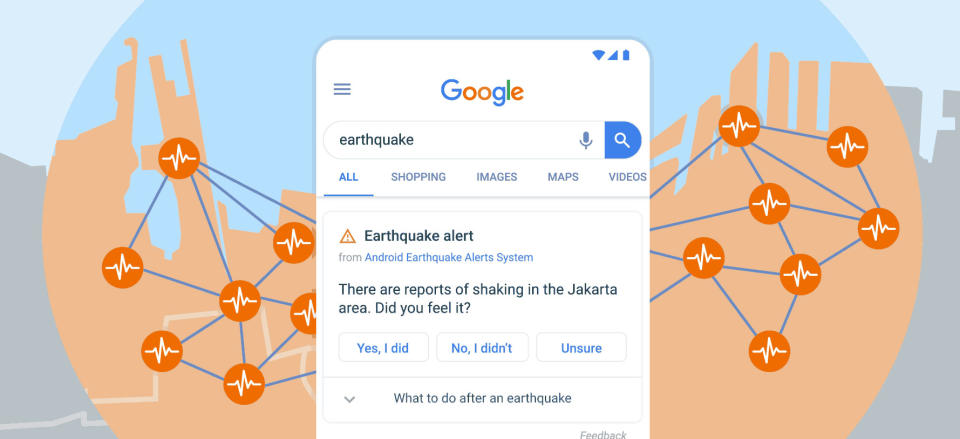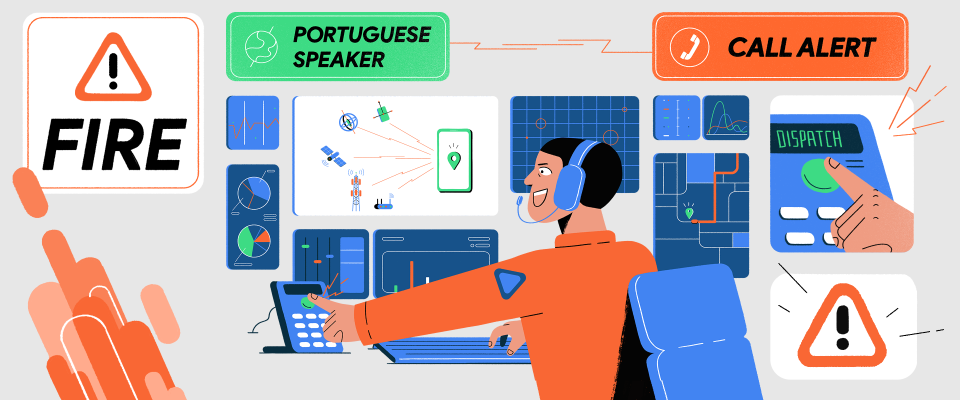Google turns Android phones into an earthquake detection network
Your phones are essentially mini seismometers.
In a natural disaster like an earthquake, even a few seconds’ heads up could save lives. You could use that time to get you and your loved ones somewhere safe and prevent fatalities and injuries. Google is rolling out a feature today that not only gives you an early warning about potential earthquakes happening, but also turns your phone into a mini seismometer and makes it part of a network of shockwave-detecting Android devices.
“The public infrastructure to detect and alert everyone about an earthquake is costly to deploy,” Google’s principal software engineer of Android Marc Stogaitis said in a blog post today. Not everyone is signed up to receive text alerts, for example, so if the early warning system is built into the OS, these messages can reach more people. Google first collaborated with the United States Geological Survey (USGS) and the California Governor's Office of Emergency Services to send these alerts to Android devices in California via the USGS’ ShakeAlert system. This uses information gathered from more than 700 seismometers across the state to figure out when an earthquake is taking place.
But it can be costly or challenging to install such a network in other impacted areas around the world, which is where the Android Earthquake Alerts System comes in. Users all over the world can opt into the program starting today. “Your Android phone can turn into a mini seismometer, joining millions of other Android phones out there to form the world’s largest earthquake detection network,” Stogaitis said.

Google will use your phone’s accelerometer to detect the movement. Stogaitis said “They’re even sensitive enough to detect the P-wave, which is the first wave that comes out of an earthquake and is typically much less damaging than the S-wave which comes afterward.” When your device senses something, it’ll send a message to Google’s earthquake detection server with some rough location information as to where it happened. The server will then gather data from other devices to corroborate and see if an earthquake is happening. UC Berkeley created an app in 2016 called MyShake that did something similar, and it appears Google has borrowed this idea, making it better integrated into the OS and more widespread.
The results of this work will for now be displayed when you look for “earthquake” or “earthquake near me” to show you if Android phones around you are reporting similar activity. Stogaitis added that the search results will also surface tips from “helpful, credible resources” on what to do after an earthquake. He also said the earthquake detection system, which he described as a “crowdsourced approach,” was developed with seismology and disaster experts Dr. Richard Allen, Dr. Qingkai Kong and Dr. Lucy Jones.
Earthquake alerts are rolling out in California first, since there’s already a great seismometer-based system in place.” Stogaitis said the feature will roll out to more states and regions using the Android-based detection over the coming year.

Google had more to share today. Along with updates to Android Auto and the smartphone OS, the company is adding a language option to its Emergency Location Service feature. This allows you to share your phone’s language setting when you’re dialing a local emergency number, which can enable a dispatcher to be better prepared with a translator ready, getting you help faster. If you find yourself in an emergency in a foreign land and don’t speak the local language, this could save some time in getting you the help you need.

 Yahoo Finance
Yahoo Finance 